World
Childhood in Conflict: A Journey Through War and Displacement in Ukraine
Explore the harrowing experiences of children in Ukraine amidst war and displacement. This journey highlights their resilience, struggles, and the impact of conflict on their childhood, revealing the urgent need for compassion and support.
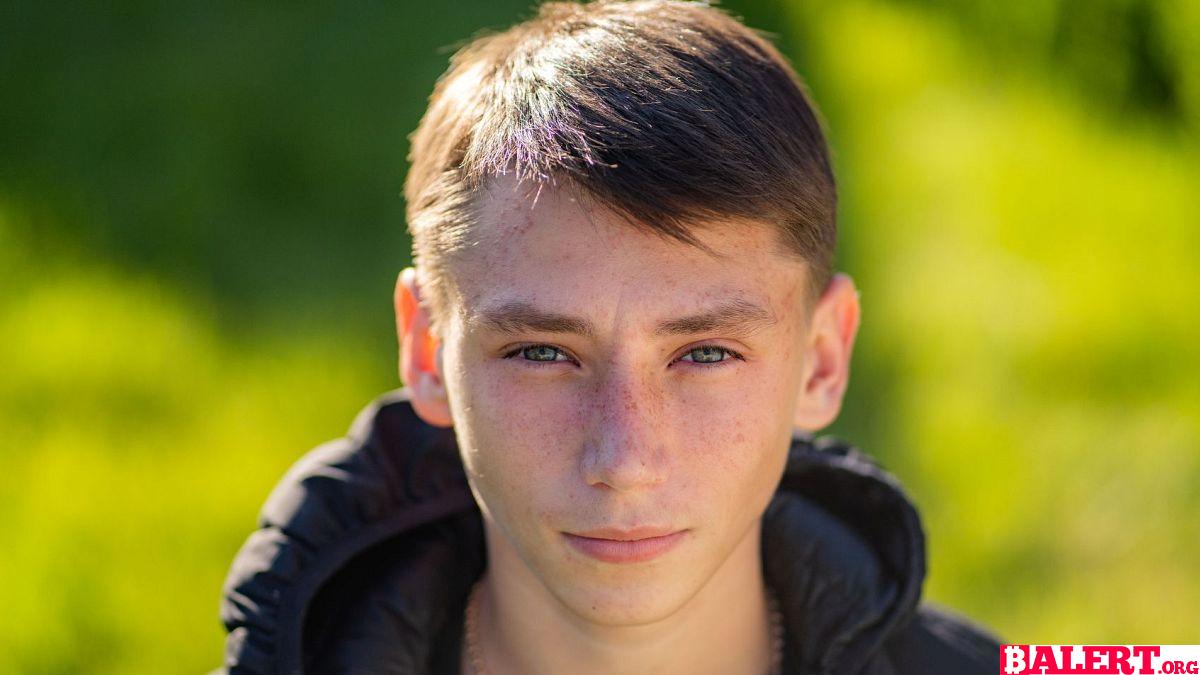
Childhood Amidst Conflict
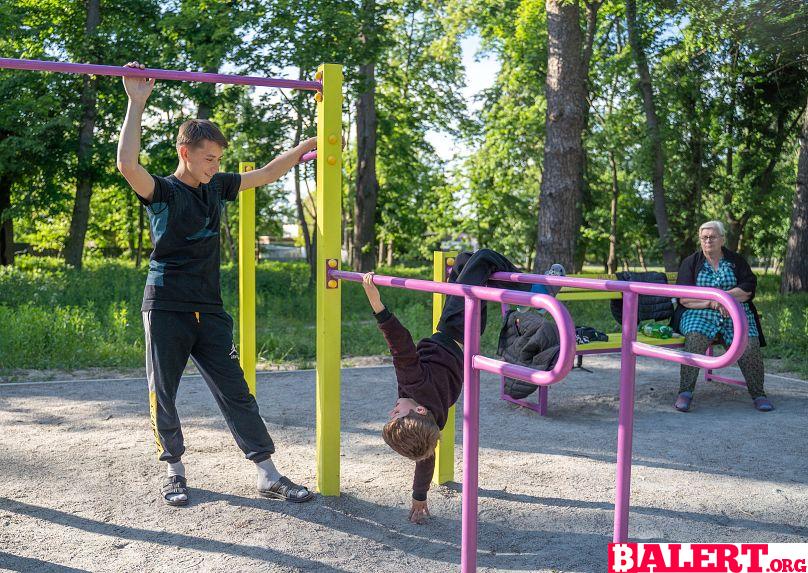
“We never thought something truly terrible would happen. We heard the sounds of bombing occasionally, but it never felt so close,” recalls 17-year-old Oleh, reflecting on his upbringing in Hnutove, a quaint village located about 20 kilometers east of Mariupol, which borders the self-proclaimed Donetsk People’s Republic. Many people overlook the fact that Russia’s war on Ukraine began back in 2014, soon after the Revolution of Dignity in Ukraine, which was followed by Russia’s occupation and annexation of Crimea, as well as its support for pro-Russian separatists fighting against the Ukrainian military in the Donbas region.
The award-winning documentary The Distant Barking of Dogs, released in 2017, poignantly captured the war’s impact on Ukraine through the eyes of a young Oleh, who was just 10 years old at the time. His childhood was forever marred by the conflict. Oleh was merely seven when the war erupted, and he remembers the frightening moments of seeking refuge in the basement to escape the deafening sounds of explosions and gunfire. “I was too young to grasp the gravity of the situation,” he reflects. Despite the ongoing war, Oleh managed to experience a semblance of normalcy in Hnutove, engaging in activities like volleyball and football, spending time with his two cousins, and attending school like any other child.
Seeking Shelter in Mariupol
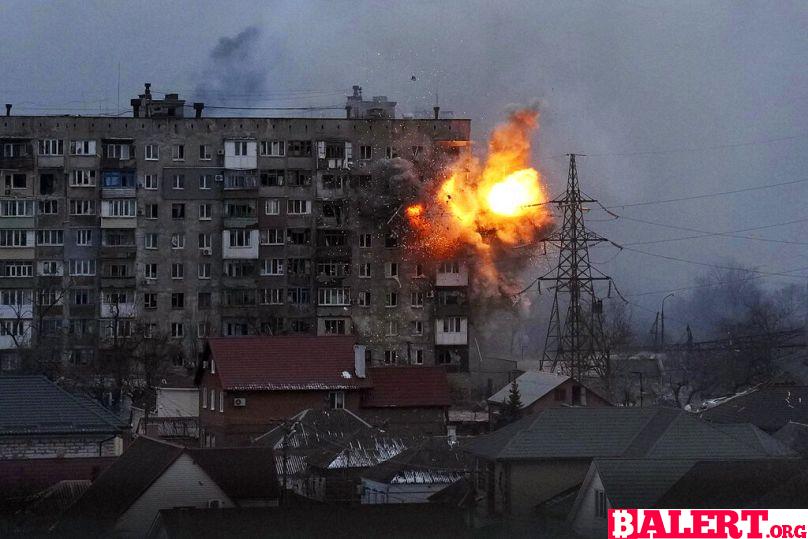
When Russia launched its full-scale invasion of Ukraine on February 24, 2022, Oleh could never have imagined the dire events that would unfold. Initially, he believed it was just another day, but as the sound of shelling intensified nearby, fear set in. In an attempt to reassure his younger cousins, he said, “They understood even less.” As the reality of the situation began to sink in, they quickly realized that the shelling was alarmingly close and more relentless than before. “We started to comprehend the seriousness of our predicament, that our lives could be in danger at any moment,” he added, emphasizing the importance of family unity during these trying times. “We couldn’t imagine life without each other and began to appreciate one another more,” he noted.
After the attack on Hnutove, Oleh’s family—which included his aunt, grandmother, father, and two cousins—made the decision to flee to Mariupol, believing it would offer a safer refuge. However, Mariupol was among the initial targets of the Russian military. This port city, located by the Sea of Azov, was historically significant for grain trade, metallurgy, and heavy engineering, including iconic establishments like the Illich Steel and Iron Works and Azovstal. The city was also viewed as a vital connection to Crimea.
In the days following the invasion, Russia unleashed a wave of carpet bombing on Mariupol. By March, residents found themselves deprived of power, running water, and gas supplies. Shortly thereafter, Russia initiated a brutal blockade, effectively cutting off the city, which had a population of around 400,000, from essential supplies. The situation became so dire that residents resorted to melting snow for drinking water, risking their lives by venturing out to cook on open flames.
Trapped for Two Months
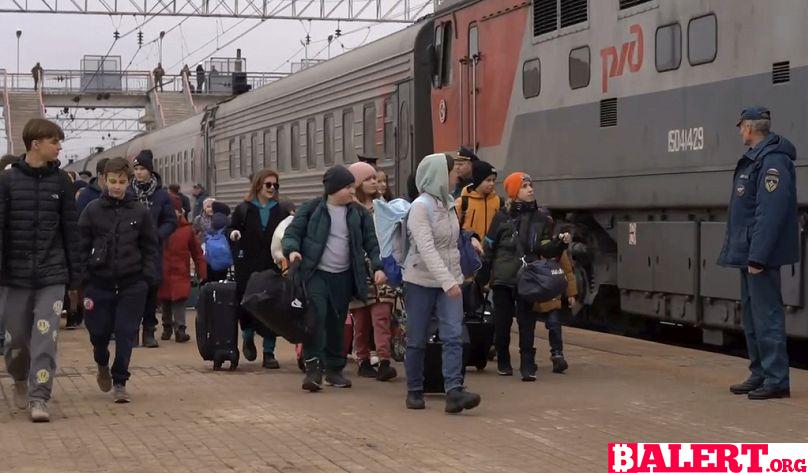
Upon their arrival in the besieged city, Oleh and his family quickly realized they were ensnared in a precarious situation. Leaving Mariupol was no longer an option; trains had ceased operations, and the roads were fraught with peril—one could be killed by shelling or shot by Russian forces. They found themselves confined to a basement for two grueling months, isolated from the outside world. “Sometimes we would sit outside the basement to breathe in some fresh air when the explosions subsided,” Oleh reminisced. Alongside the constant barrage of shelling, they were oblivious to the fate of Mariupol and the rest of Ukraine.
“We dreaded the sound of planes overhead, especially when they flew at night, dropping bombs,” he added, recalling the fear that permeated their nights. Each excursion outside for basic necessities felt like a potential last goodbye. An explosion could be heard in an apartment building after a Russian tank fired in Mariupol on March 11, 2022.
“We were fortunate that the owner of a nearby second-hand shop opened his doors to us, allowing us to take clothes to stay warm. That became our refuge for blankets, jumpers, hats, and mittens,” Oleh explained. When it came to water and food, they resorted to drinking from the heating system once they ran out of supplies. “We attempted to reach a nearby well, but it was often under fire, and we encountered dead bodies on the ground,” he recounted.
Throughout this ordeal, Oleh and his family clung to the hope of returning home: “We longed for it deeply. Every night, we fell asleep with the hope that we could go back the next day.” After two months of enduring the harrowing conditions in Mariupol, they decided to return to Hnutove.
A Home Transformed
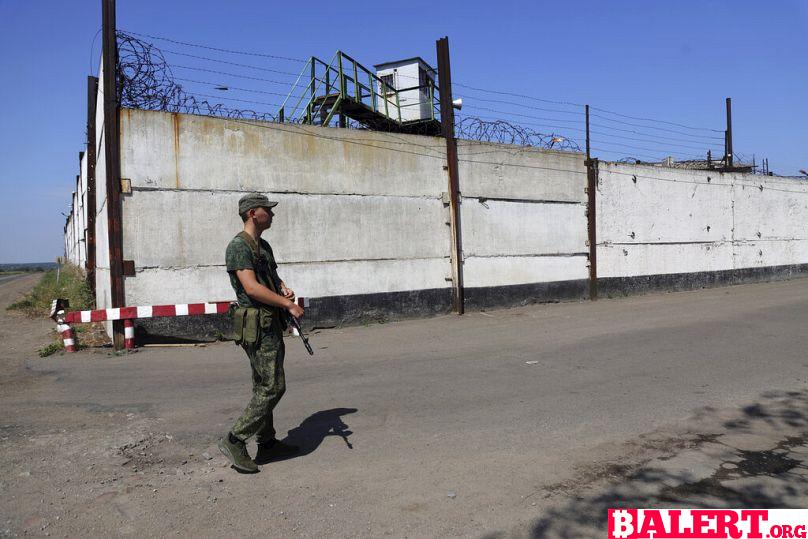
Upon returning home, Oleh discovered a landscape forever altered. The village, once a source of comfort, now felt alien and unsettling. His home, which he had envisioned as a sanctuary, had become a site of devastation, occupied by Russian soldiers who left it in disarray. “When we returned, we felt a strange presence in our own home. Sleep came difficult in our own beds,” the 17-year-old articulated.
According to Oleh, the village appeared frozen in time due to Russia’s full-scale invasion, with infrastructure in ruins, no access to water, disrupted transportation, and a lack of connection to nearby towns. Prices for basic goods had skyrocketed. As of February 2022, Hnutove remains under temporary Russian occupation. Unwilling to live under these circumstances and feeling unsafe in their own home, Oleh’s family opted to leave the temporarily occupied territories.
The Filtration Camp Experience
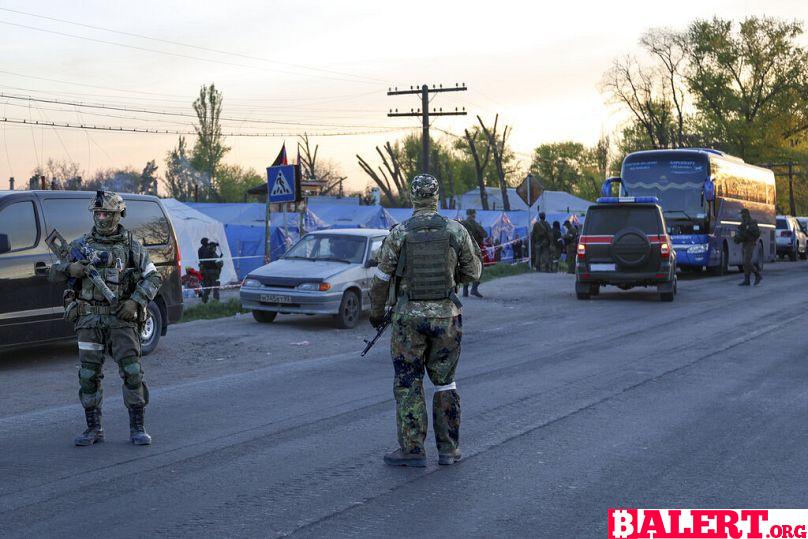
In order to escape, they had to pass through a Russian filtration camp. These camps are notorious for their brutal “security” checks. Ukrainians attempting to leave occupied territories face a perilous journey filled with checkpoints and filtration camps. Often, they are forced to traverse through Russia and third countries like Georgia or Belarus to reach Ukrainian-controlled territory. Direct routes from occupied areas are dangerous due to heavy military presence and ongoing combat.
A neighbor drove the family to a filtration camp located in a nearby village. Although Oleh doesn’t recall the exact location, he remembers a field filled with tents where people were subjected to interrogations. Research by the Media Initiative for Human Rights indicates that there were two filtration camps near Oleh’s hometown: Novoazovsk and Bezimenne. Both align with Oleh’s description of tents set up in a field-like area, but Bezimenne appeared to be closer, just a 45-minute drive from Hnutove.
Aksana Filipishyna, an analyst at the Ukrainian Helsinki Human Rights Union (UHHRU), noted that the Bezimenne filtration camp held around 5,000 Ukrainian refugees. “Refugees were crammed into overcrowded school buildings or tents, facing severe inspections,” she explained. Reports of poor nutrition and a lack of medical care were rampant. “Some individuals who underwent filtration mentioned that there were fatalities due to inadequate medical attention,” she continued, adding that detainees were often unable to leave freely until they successfully “passed filtration.”
Human rights abuses, including torture and extrajudicial killings, were frequently reported. After the filtration process, many Ukrainians found themselves forcibly deported to Russia, despite the Russian government framing these relocations as “evacuations.”
Understanding the Purpose of Filtration Camps

Filipishyna outlined two primary objectives of these camps. “The first was to identify and neutralize individuals viewed as disloyal to the Putin regime,” she explained. This included pro-Ukrainian individuals, current or former military personnel, activists, government officials, and others perceived as threats to Russian occupation. “Once such individuals were identified, they were often separated from their families and subjected to physical and psychological abuse,” she noted.
“Many of these individuals ended up in Russian prisons or camps, with their whereabouts remaining unknown for extended periods,” Filipishyna added, highlighting that those who failed the filtration process were often sent to notorious facilities like Olenivka.
The second objective was to manage the movement of Ukrainian refugees within Russian territory. Following the siege of Mariupol, Russia faced challenges in distributing refugees, prompting the establishment of these camps to “control their relocation.” Refugees underwent fingerprinting, body searches, and interviews before being dispatched to various Russian cities for temporary accommodation.
“We first became aware of these concentration areas for civilians undergoing inspection and interrogation procedures following the siege of Mariupol,” explained the UHHRU analyst. In a desperate bid for survival, people sought to escape amid relentless bombardment from Russian armed forces. The constant rocket attacks and destruction of civilian infrastructure left many with nowhere to find refuge. While some managed to reach territory under Ukrainian control, others were compelled to cross into Russia. Filipishyna noted that filtration measures were first encountered by Ukrainians attempting to cross the Ukrainian-Russian border in February and March 2022.
Research from Yale University has identified at least 21 Russian filtration camps in Donetsk Oblast.
Experiencing Fear and Uncertainty
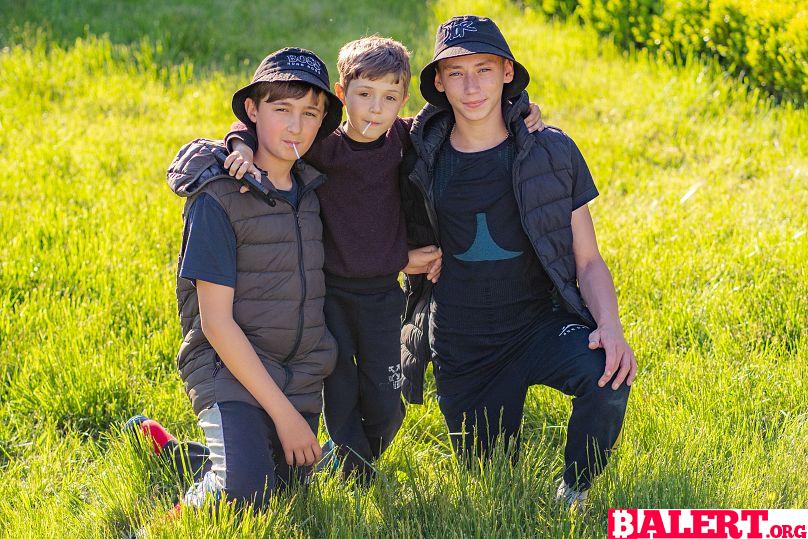
In the camp, Oleh was acutely aware that he and his family were at the mercy of Russian soldiers. “I knew they could do anything to us,” he said. “They told me not to be scared. If they wanted to kill me, they would have already done so,” the 17-year-old recalled.
While awaiting his father, who was still undergoing interrogation, Oleh witnessed a young woman being forcibly dragged from a tent by soldiers. “They covered her head and shoved her into a car,” he remembered. He never discovered her fate, nor whether she remained alive or what transpired. “It was horrifying to watch. They reveled in humiliating the detainees,” he added, describing the brutality he witnessed.
While waiting for his father, he heard the chilling sounds of people being beaten, tortured, and verbally abused. His father, unaware of what was happening to his son, believed that Oleh was among those screaming. The soldiers interrogating his father maliciously informed him that his son had been captured and would never be seen again. “My father screamed in desperation: ‘No, no, no! Take me instead! Don’t take my son!’” Oleh recounted, expressing the cruelty of the soldiers, who laughed at his father’s anguish. Fortunately, they eventually released his father.
On March 22, 2024, children deported from settlements adjacent to Ukraine boarded a train to relocate to Penza, in Belgorod, Russia. Ukrainian children were frequently sent to camps across temporarily occupied Crimea and various Russian regions, including Moscow and Rostov, Filipishyna explained. “Over 40 locations have been identified where Ukrainian children were taken,” she stated. Ukrainian authorities estimate that around 19,500 children have been deported, though the true number could be significantly higher.
The United Nations has classified the deportations of Ukrainian children as a war crime, with the International Criminal Court (ICC) issuing arrest warrants for Russian President Vladimir Putin and Maria Lvova-Belova, the Presidential Commissioner for Children’s Rights. According to international law, including the 1948 Genocide Convention, these deportations may constitute acts of genocide.
A Journey to Safety
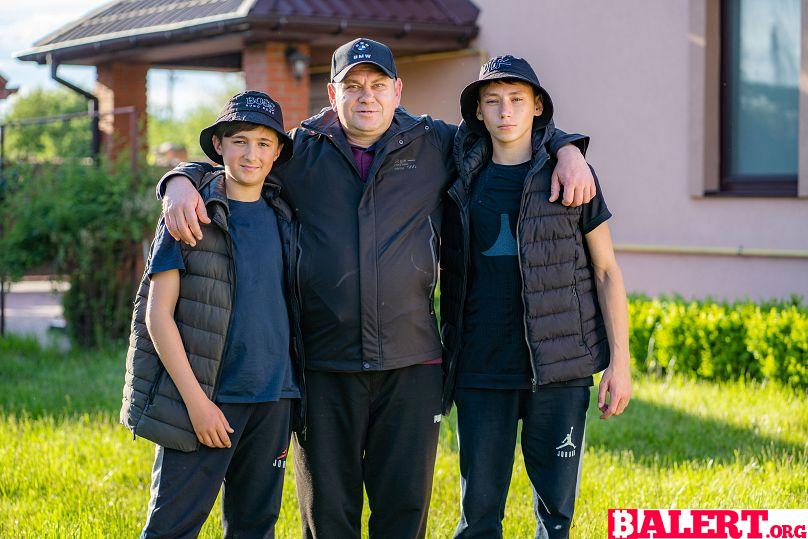
After enduring the filtration camp experience for several hours, Oleh and his family embarked on a journey through Russia to reach the safety of the Baltic states. He recalls the stressful crossing at the Ludonka checkpoint, one of the last remaining open land border crossings between Russia and the European Union.
After successfully passing the border, they continued their journey without pause until they reached Warsaw, where they stayed for three days. Oleh fondly remembers how well they were treated by volunteers: “They even provided us with fruit and drinking water.” Following their brief stay in Warsaw, they made their way to Kyiv, where they currently reside.
Longing for Home
The ongoing war in Ukraine has left profound psychological scars on children, affecting not only those who have lived through the conflict since 2014 but also those impacted by the full-scale invasion. Oksana Pysarieva, a psychologist at the Voices of Children charity foundation, explains that the trauma is widespread, affecting even those far from the front lines. Children throughout the country are grappling with separation from loved ones, a pervasive fear of death, and a sense of lost security.
While younger children may exhibit immediate reactions and vivid memories, teenagers are often showing signs of anxiety, depression, and disorientation, Pysarieva explains. The long-term psychological effects, however, remain uncertain. The harsh realities of war will undoubtedly shape the lives of these children, influencing their choices, values, and perceptions of safety.
Oleh, along with his cousin and grandmother, continues to hold onto the memories of his hometown. “I often think about home and the river where I spent every summer as a child,” he shares wistfully. “My greatest wish is to one day return to say a proper goodbye, as we left so abruptly. We didn’t even have the chance to take all our family photos,” he explains, adding that he longs to retrieve his grandmother’s sewing machine, an item she cherishes deeply.
World
Dominique Pelicot Testifies in Harrowing Rape Trial
Join us as Dominique Pelicot courageously testifies in a harrowing rape trial, shedding light on the complexities of trauma and justice. Her powerful story raises crucial questions about the legal system and the importance of support for survivors.

Dominique Pelicot Takes the Stand in Shocking Rape Trial
In a courtroom drama that has captivated France and garnered international attention, Dominique Pelicot, the man at the center of a harrowing rape trial, finally addressed the court. With tears streaming down his face, he recounted how his wife had been instrumental in helping him cope with a tumultuous past marked by trauma. He revealed that he had endured a sexual assault at the tender age of nine while hospitalized, and he also witnessed a gang rape during his teenage years while working as an apprentice electrician on a construction site.
“She didn’t deserve this, I acknowledge that,” Mr. Pelicot stated, his voice barely audible as he struggled to convey his emotions. The gravity of the situation weighed heavily on him, and the courtroom fell silent, straining to catch his every word.
Now 71 years old, Mr. Pelicot faces serious allegations of drugging his wife, Gisèle Pelicot, whom he has been married to for half a century, over a span of nearly ten years. Prosecutors contend that he used drugs to render her comatose, allowing him to rape her repeatedly. Furthermore, authorities allege that he went so far as to invite numerous men into their home, facilitating a nightmarish scenario where they, too, engaged in the assault of his wife.
Overall, 51 men, including Mr. Pelicot, are on trial concurrently, primarily facing charges related to the aggravated rape of Ms. Pelicot. Among them, one individual has already pleaded guilty to similar crimes, admitting to drugging his own wife to assault her and inviting Mr. Pelicot to partake in the horrific act while she was incapacitated.
Mr. Pelicot’s unexpected testimony came after a tumultuous start to the trial. Just a week in, he was stricken with severe health issues that forced him to miss four consecutive days in court. The head judge ultimately decided to postpone proceedings, as Mr. Pelicot was diagnosed with kidney stones, a kidney infection, and prostate complications, adding yet another layer of complexity to this already harrowing case.
World
Meta Bans Russian State Media Outlets from Social Media Platforms
Explore the implications of Meta’s decision to ban Russian state media outlets from its social media platforms. Understand the impact on information dissemination and the ongoing battle against misinformation in the digital landscape.

Meta Imposes Global Ban on Russian State Media Outlets
In a significant move, Meta Platforms, Inc., the parent company of Facebook, has announced the prohibition of Russian state media outlets, including RT (Russia Today) and Rossiya Segodnya, from all its social media platforms. The decision stems from the company’s concerns regarding the deceptive strategies employed by these media organizations to execute covert influence operations across the internet.
Meta made this announcement on Monday, emphasizing that the ban will be enforced worldwide across its various platforms, such as Instagram, WhatsApp, and Threads. The rollout of this ban is expected to take place over the coming days.
Statement from Meta
A spokesperson for Meta elaborated on the decision, stating, “After careful consideration, we have expanded our ongoing enforcement actions against Russian state media outlets. As a result, Rossiya Segodnya, RT, and other affiliated entities are now banned from our applications globally due to their involvement in foreign interference activities.”
For further insights into this development, watch the video in the player above.
World
Trump Recalls Alleged Assassination Attempt While Golfing
Explore Donald Trump’s chilling recollection of an alleged assassination attempt he experienced while enjoying a round of golf. Delve into the tense moments and his reflections on safety, fame, and the unpredictability of public life.

In a recent interview on the social media platform X, Republican presidential nominee Donald Trump recounted a harrowing incident he claims to have experienced while playing golf. Trump described how, during a peaceful Sunday morning round with friends, the tranquility of the day was abruptly shattered by the sound of gunfire in the air.
“It was a beautiful day, everything was just perfect,” Trump reflected. “Then all of a sudden, we heard shots being fired—probably around four or five in total.” He went on to explain that a Secret Service agent was the first to spot the suspect, who was allegedly armed with an AK-47, a powerful assault rifle.
“The agent saw the barrel of the weapon and immediately took action, returning fire at the barrel and aiming in the direction of the bushes,” Trump detailed. “I would have loved to have sunk that last putt, but we decided it was best to leave the scene promptly.”
Trump expressed his gratitude towards the agents and a vigilant civilian who aided in tracking down the suspect, who was eventually apprehended following a high-speed chase.
Suspect Faces Multiple Federal Gun Charges
The FBI has identified the suspect as Ryan Wesley Routh, accusing him of targeting Trump during his time at the golf club in West Palm Beach, Florida. According to an FBI report, Routh had allegedly hidden among the hedges of the golf course for an astonishing 12 hours. Authorities discovered an SKS-style assault rifle, a GoPro camera, and a bag of food at the scene.
The 58-year-old Routh is now facing two serious federal gun charges. If convicted on both counts, he could face a combined maximum sentence of 20 years in prison. Notably, neither of the charges is directly related to an assassination attempt. The first charge pertains to possessing a firearm despite a prior felony conviction, which carries a potential 15-year sentence, a fine of $250,000 (€225,000), and three years of supervised release.
The second charge involves possession of a firearm with an obliterated serial number, which could result in a five-year prison term, the same financial penalties, and also three years of supervised release. As the investigation continues, additional charges could be forthcoming.
While the motive behind Routh’s actions remains unclear, his digital footprint reveals strong political affiliations, particularly concerning issues surrounding Ukraine and China. Routh consistently expressed support for Ukraine across various social media platforms, even claiming to have orchestrated a recruitment scheme for international volunteers aiming to assist Ukraine in its fight against Russia’s invasion. This behavior has been denounced by Ukrainian soldiers and members of the International Legion, who disavowed Routh’s actions and motives.
-

 Business5 months ago
Business5 months agoThe Significance of Jackson Hole: A Central Banking Tradition
-

 Tech4 months ago
Tech4 months agoNew Leaks and Features About the Samsung Galaxy S25 Ultra
-

 Business7 months ago
Business7 months agoObituary: Dan Collins
-

 Article7 months ago
Article7 months agoCreative Design Applications Developed with Artificial Intelligence
-

 Business4 months ago
Business4 months agoBhutan’s Strategic Investment in Bitcoin: A New Era for the Himalayan Kingdom
-

 World5 months ago
World5 months agoThierry Breton Resigns: Impact on European Union Leadership
-

 Gaming5 months ago
Gaming5 months agoNew Details and Trailer Released for Dead Rising Deluxe Remaster
-

 Gaming5 months ago
Gaming5 months agoNew Details for Alan Wake 2 and PlayStation 5 Pro Announcement












